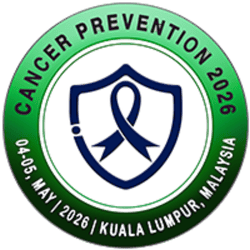Track: Genetic & Personalized Prevention

Genetic and personalized prevention approaches are transforming how cancer risk is identified, monitored, and reduced. This session explores how genetic counseling, genomic screening, and precision-based interventions enhance cancer prevention strategies and support early detection of high-risk individuals. By focusing on cancer epidemiology, healthcare research, and preventive oncology, the session highlights advances in molecular diagnostics, hereditary cancer risk assessment, and personalized lifestyle modifications. It also emphasizes global cancer initiatives, policy-driven programs, and equitable access to genomic technologies to empower individuals and healthcare systems to adopt proactive, patient-centered cancer prevention strategies worldwide.
Hereditary Cancer Syndromes and Genetic Counseling
Genetic counseling helps identify individuals with inherited cancer syndromes such as BRCA1/2 mutations. This sub-topic explores the role of counseling in guiding risk assessment, family screening, and personalized prevention strategies to improve early detection and cancer risk reduction.
Genomic Screening for High-Risk Populations
Genomic screening identifies individuals predisposed to certain cancers based on their genetic profiles. This sub-topic discusses healthcare research advancements that integrate genomic tools into preventive oncology to improve risk stratification, enhance early detection, and support personalized cancer prevention programs.
Advancing Cancer Epidemiology through Genetic Data Integration
Combining cancer epidemiology with genetic data improves the understanding of population-based risks and trends. This sub-topic examines how such integration guides public health interventions, strengthens preventive oncology programs, and shapes global cancer initiatives targeting vulnerable communities.
Integration of Molecular Diagnostics into Preventive Oncology
Molecular diagnostics offer insights into genetic and epigenetic changes associated with cancer. This sub-topic highlights innovative technologies and healthcare research approaches that support early detection, guide preventive treatments, and enable personalized interventions for hereditary and sporadic cancers.
Pharmacogenomics in Cancer Prevention and Risk Management
Pharmacogenomics studies how genetic variations influence an individual’s response to medications. This sub-topic explores the use of targeted drugs for chemoprevention and discusses how pharmacogenomics enhances personalized prevention strategies and strengthens global cancer initiatives in high-risk populations.
Ethical, Legal, and Social Implications of Genetic Testing
The integration of genetic testing into cancer prevention raises ethical and policy concerns. This sub-topic discusses issues related to privacy, data sharing, informed consent, and equitable access to personalized prevention technologies in diverse healthcare systems worldwide.
Scientific Highlights
- Public Health & Cancer Awareness
- Cancer Prevention
- Screening & Early Detection
- Vaccination & Immunoprevention
- Environmental & Occupational Factors
- Complementary & Emerging Approaches
- Genetic & Personalized Prevention
- Cancer Biology and Genetics
- Cancer Immunology
- Molecular Oncology
- Hematology in Cancer
- Cancer Diagnosis and Therapeutic Approaches
- Oncology Research and Innovations
- Advanced Methods in Cancer Research
- Cancer Epidemiology and Prevention
- Future Trends in Prevention & Research
- Pediatric Oncology


